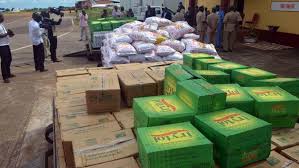The number of Ebola infections will triple to 20,000 by November, soaring by thousands every week if efforts to stop the outbreak are not stepped up radically, the WHO warned in a study on Tuesday.
“If we don’t stop the epidemic very soon, this is going to turn from a disaster into a catastrophe,” said Christopher Dye, the head of strategy at the World Health Organization and a co-author of the study.
Unless reigned in, the outbreak could drag out for years and possibly become entrenched in West Africa, where it has already killed more than 2,800 people.
“Without drastic improvements in control measures, the numbers of cases of and deaths from Ebola are expected to continue increasing from hundreds to thousands per week in the coming months,” the study said.
“We’ve rather modestly only extended the projections to November 2, but if you go to … January 2, you’re into hundreds of thousands,” Dye told reporters in Geneva.
The epidemic might simply “rumble on as it has for the last few months for the next few years,” he said, stressing that “the fear is that Ebola will become more or less a permanent feature of the human population.”
In the West African region reeling from the outbreak, the steepest challenge is currently facing Liberia, where more than 3,000 people have been infected, nearly 1,600 people have died, and where health workers turn away people begging for their lives from treatment units due to chronic shortages of beds and staff.














